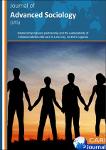| dc.identifier.citation | Otto, D. E., & Mwesigwa, D. M. (2022). Relationship between partnership and the sustainability of institutionalized child care in Lira City, northern Uganda. Journal of Advanced Sociology, 3(2), 1-21. | en_US |
| dc.description.abstract | Purpose: This study assessed the relationship between partnership and the sustainability of institutionalized child care in Lira City, northern Uganda. Specifically, three objectives guided the study, namely; to examine the relationship between networks and sustainability of institutionalized child care, to examine the relationship between coordination and sustainability of institutionalized child care, and to determine the relationship between collaboration and sustainability of institutionalized child care. As a consequence, the paper reverts to three selected variables of partnership, that is, networks, coordination and collaboration vis-à-vis sustainability of institutionalized child care.
Methodology: A mixed approach was used and data were collected using a structured questionnaire with a five-point Likert scale and an interview guide. The study was based on Forebelian principles and attachment theory. Statistical data were analyzed using descriptive statistics and inferential statistics (linear regressions). Thematic analysis was used to analyse qualitative data.
Results: The study established a positive and significant relationship between networking and sustainability of institutionalized children's care (R2 =.362, Coef. =.425) as it increases the sustainability of institutionalized child care by 36.2%. Further, the findings revealed that coordination increased sustainability of institutionalized children's care by 47.7% since it produced an adjusted R2 of.477. The regression coefficient of.477 suggested a strong and positive correlation. Finally, it was established that a significant correlation exists between collaboration and sustainability.
Unique contribution to theory, policy and practice: The study recommended that the government should partner with institutionalized children's homes since partnership is one of the fundamental mechanisms in promoting sustainability. Also, there is need for capacity building through trainings on partnerships organized by either the government or NGOs, and further studies may be conducted to examine other factors that affect the sustainability of institutionalized children’s care apart from partnerships. Consequently, the results contribute to the national policy on child care centers seeing that they are becoming more instrumental in caring for the vulnerable children. | en_US |

